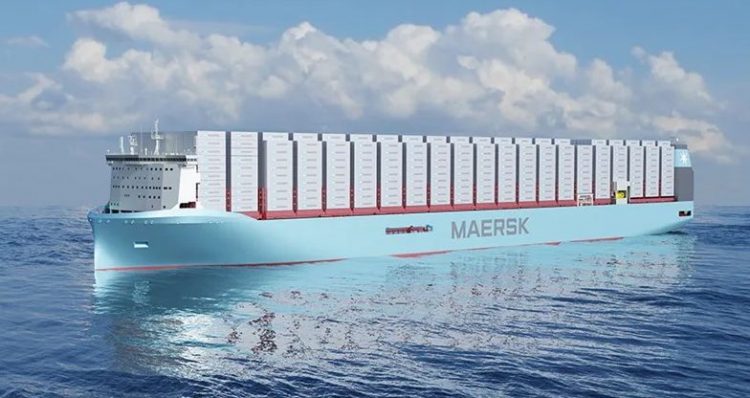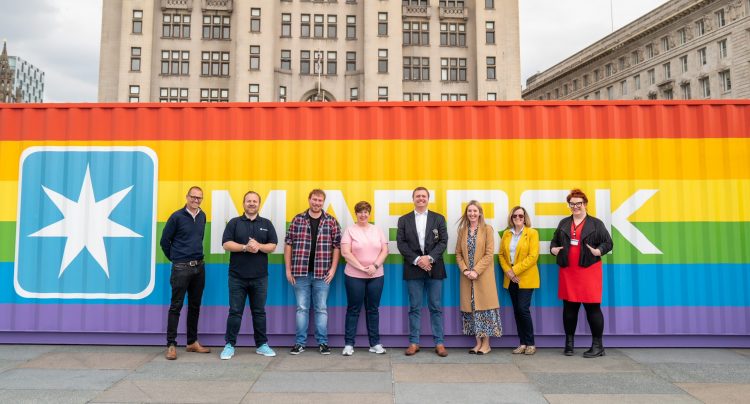Maritime giant Maersk to create hundreds of new jobs
Global shipping and logistics giant Maersk, which operates a key UK base in Liverpool, is to expand, creating hundreds of new jobs. Tony McDonough reports

Shipping and logistics giant Maersk will create hundreds of new jobs in an expansion drive and will launch a new fleet of methanol-powered container vessels.
Maersk operates a key UK base in Liverpool city centre where it employs around 250 people.
Its current UK workforce numbers around 1,000 and several hundred new jobs are envisaged over the coming years. Its growth programme over the next three years encompasses warehousing, airfreight, rail, customs and other services.
Addressing the monthly Face-2-Face networking event at Mersey Maritime in Birkenhead, Samantha Brocklehurst, customer experience director at Maersk in Liverpool, said the company was undergoing a transformation across its global operations.
“We have been on a journey from the shipping line we have been for almost a century to what we now call a global supply chain integrator… we are integrating the world,” said Samantha.
As part of its drive to be a net zero carbon business by 2040 (bringing forward its original target by 10 years) Maersk is acquiring 19 methanol-powered container vessels. These will have a capacity of up to 17,000 containers.
Methanol is being seen in the maritime sector as a viable and sustainable alternative to diesel and bunker oil for large vessels. If it is produced using natural gas, methanol offers CO2 savings of 10-15%. However, if produced using renewable energy like in Maersk’s case, this can rise to 90%.
Maersk’s first methanol vessel will come into service on its European network later in 2023. Samantha said: “The feeder vessel will be deployed in the Baltic but we would have liked it to call also at the Port of Liverpool, of course.”
Across the globe Maersk’s operations are huge. On any given day it will transport up to 20% of the world’s food, materials, medicines and other goods by sea, air, road and rail.
It services 100,000 customers in more than 130 countries. The business employs 110,000 people worldwide and offers 7.1m sq m of warehousing capacity. It operates 730 container vessels and makes a port call somewhere in the world every six minutes.
In 2016, the Danish company embarked on its mission to become a ‘global supply chain integrator’.
Samantha explained: “We have a massive footprint across the world. We have a responsibility to the communities we operate in, we have a responsibility to the people we work with and we have a responsibility to global trade.
“What we want to bring to the fore is that we are not just about moving goods from A to B. We are so much more than that.


“If we want to deliver on that by being a trusted partner and optimising the supply chain then we have to work with all the different parts of that supply chain. We do not want to be leaving things to chance.”
Maersk’s transformation strategy is built around three pillars – people, ESG (environmental, social and governance) and technology and processes.
On ESG, Samantha said it was important to create an environment “where people feel safe and welcome”.
Locally, Maersk is a big supporter of Pride in Liverpool. The company has painted 20 containers in the six colours of the Pride flag and sent them around the world. This, she added, had been particularly well received.
Technology, she said, was critical to the success of its global logistics strategy. She explained: “People don’t think about us being a tech company but Maerks employs nearly 6,000 IT engineers with Maidenhead in the UK being one of the main tech hubs of the company, and there is definitely an interesting crossover.
“There is no point in Maersk having the best terminals in the world if we don’t invest in the technology to optimise that.”
And on net zero, Samantha added: “We realise that what we do is carbon heavy and so we are putting a lot of effort into our push towards decarbonisation.
READ MORE: Green ammonia terminal to be built on the Mersey
“It has been a good couple of years for shipping and logistics and we are going to make sure we reinvest that into our sustainability strategy.
“Our original net zero target was 2050 but now we have brought that forward to 2040 with a very detailed roadmap and plans on how to achieve that.”
Samantha also welcomed the launch of the Liverpool City Region Freeport which has gone live in the last few weeks.
“One of the main draws for us are locations with freeports particularly if there is good rail connectivity and green corridors. It draws our attention when we make decisions about where we go next,” she added.

